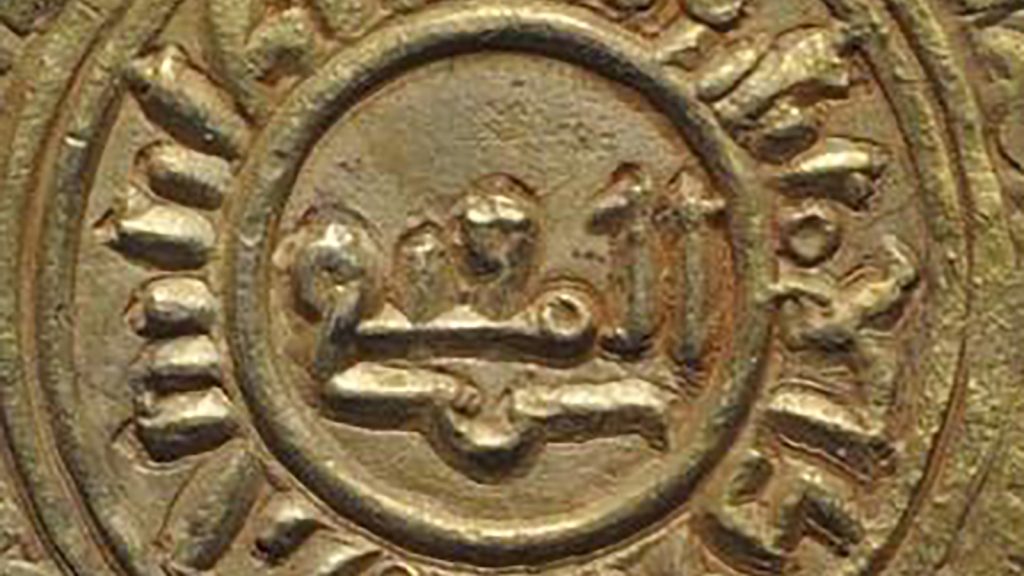

Latest posts View all
Available soon
Resources
Defining difference across the Strait of Gibraltar: The Almoravids and Almohads in al-Andalus (The Iberian Peninsula)
Amira K. Bennison
Workshop 1: This paper considered the questions that arise in studying the elites of the medieval Maghrib and Iberia in the eleventh to twelfth centuries CE in the context of historiography that sometimes sees Muslim Spain and Portugal (al-Andalus) as European and therefore culturally tolerant in contrast to the African Maghrib. This is important to this period when the rulers of al-Andalus came from the Maghrib and when modern perceptions of national identity and political community did not exist. My presentation therefore looked at the nature of the elite, its composition, and the socio-ethnic identities present in this period such as Berbers, Arabs and Iberians with a view to blurring the lines between them and looking more closely at who was part of the Almoravid and then the Almohad ruling elites.
Workshop 2: Based on discussions in workshop 1 and the contributions of other participants, this paper looked at both the ruling elites of the Iberian peninsula and the Maghrib with a view to thinking about elite formation and the objectives of those part of the group termed khāṣṣa, whether political, economic or religious. Recent work has shown how entwined elites in the Iberian peninsula and North Africa were, but also how diverse their political and economic bases were, e.g. rural, militarily able tribesmen, estates, rights to collect usufruct from large areas, control of towns or urban properties, relations with merchants, residence with the ruler. In contrast to areas of ‘landed’ feudal lords, Muslim aristocrats tended to be quite mobile, especially in North Africa, and elites of service moved with rulers. Their relations with their followers and the general population (ʿāmma) varied from the Sahara to the fertile valleys of Iberia but they were generally informed by religio-political notions of the contract between rulers and ruled, and the basic principle that in exchange for tax payment, people expected to be able to live secure and reasonably prosperous lives.
Alexander Mallett
The main source for the reign in Damascus of Zahir al-Din Tughtegin (1104-1128) is the chronicle by Ibn al-Qalanisi generally known as Dhayl tarikh Dimashq. Its author lived through Tughetegin’s reign and almost certainly worked under him in a high position in the city’s administration. This paper will first examine the main points within his chronicle of how Ibn al-Qalanisi presented Tughtegin’s minority rule in Damascus in order to ascertain what is viewed as important for that writer and his immediate context. Secondly, will then employ an ‘against the grain’ approach to understand how the Turkish ruler himself chose to govern the city. Such a comparison will enable a better understanding of how minority rule was guaranteed both in practice and in principle, how those two differed in twelfth-century Damascus, and what conclusions may be drawn about the city’s society as a result.
People
Amira K. Bennison
Amira K. Bennison is Professor in the History and Culture of the Maghrib at the University of Cambridge and a Professorial Fellow at Magdalene College. Her research interests include the medieval Islamic West, Maghribi modes of legitimation and cultures of power, and 19th-century Muslim religio-political engagement with modernity. Her publications include The Almoravid and Almohad Empires (Edinburgh, 2016), The Articulation of Power in Medieval Iberia and the Maghrib, edited (Oxford, 2014); The Great Caliphs, (London, 2009); Cities in the Premodern Islamic World, edited with Alison L. Gascoigne, (London, 2007); Jihad and its Interpretations in Pre-Colonial Morocco, (London, 2002), as well as numerous articles. Amira also contributes regularly to television programmes on Islamic history and is a frequent guest on BBC Radio 4’s ‘In Our Time’ and other radio programmes and podcasts on Islamic history. She is currently completing a book on legitimacy and urbanism in the medieval Maghrib.

Alexander Mallett
Alexander Mallett is Associate Professor in the Faculty of International Research and Education and a member of the team of the Chair of the State of Qatar for Islamic Area Studies at Waseda University in Tokyo. He received a PhD in Islamic History from the University of Edinburgh in 2009, and since then has worked at a number of institutions in Europe, including the University of Birmingham, Royal Holloway University of London, Exeter University, and Leiden University. His work examines relations between Muslims and Christians in the Middle Ages, focusing particularly on the Crusades during the period of Frankish settlement in the Levant (1097-1291). His publications have included Popular Muslim Reactions to the Franks in the Levant (Ashgate, 2014), the edited volumes Medieval Muslim Historians and the Franks in the Levant (Brill, 2014) and Franks and Crusades in Medieval Eastern Christian Historiography (Brepols, 2020), and the co-edited 5-volume reference set Christian-Muslim Relations. A Bibliographical History, 600-900 (Brill, 2010-2013). He is currently working on a project on Muslim perspectives on the Crusades from the medieval period until today.

